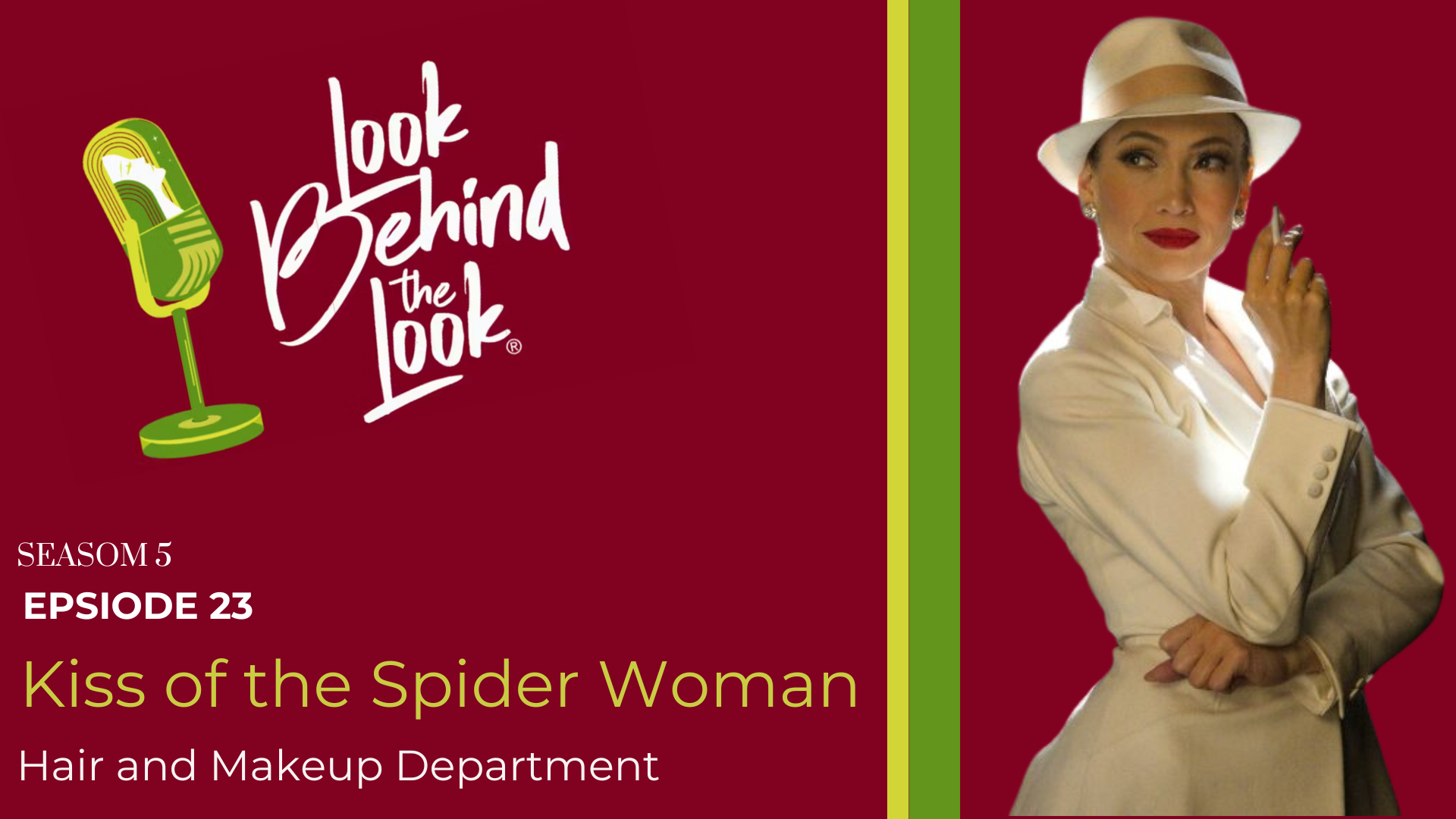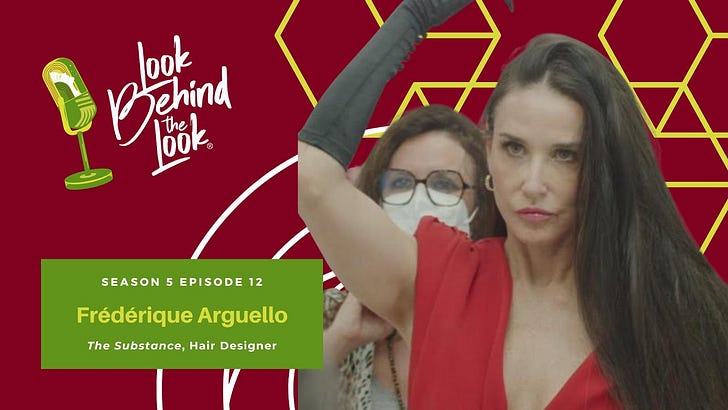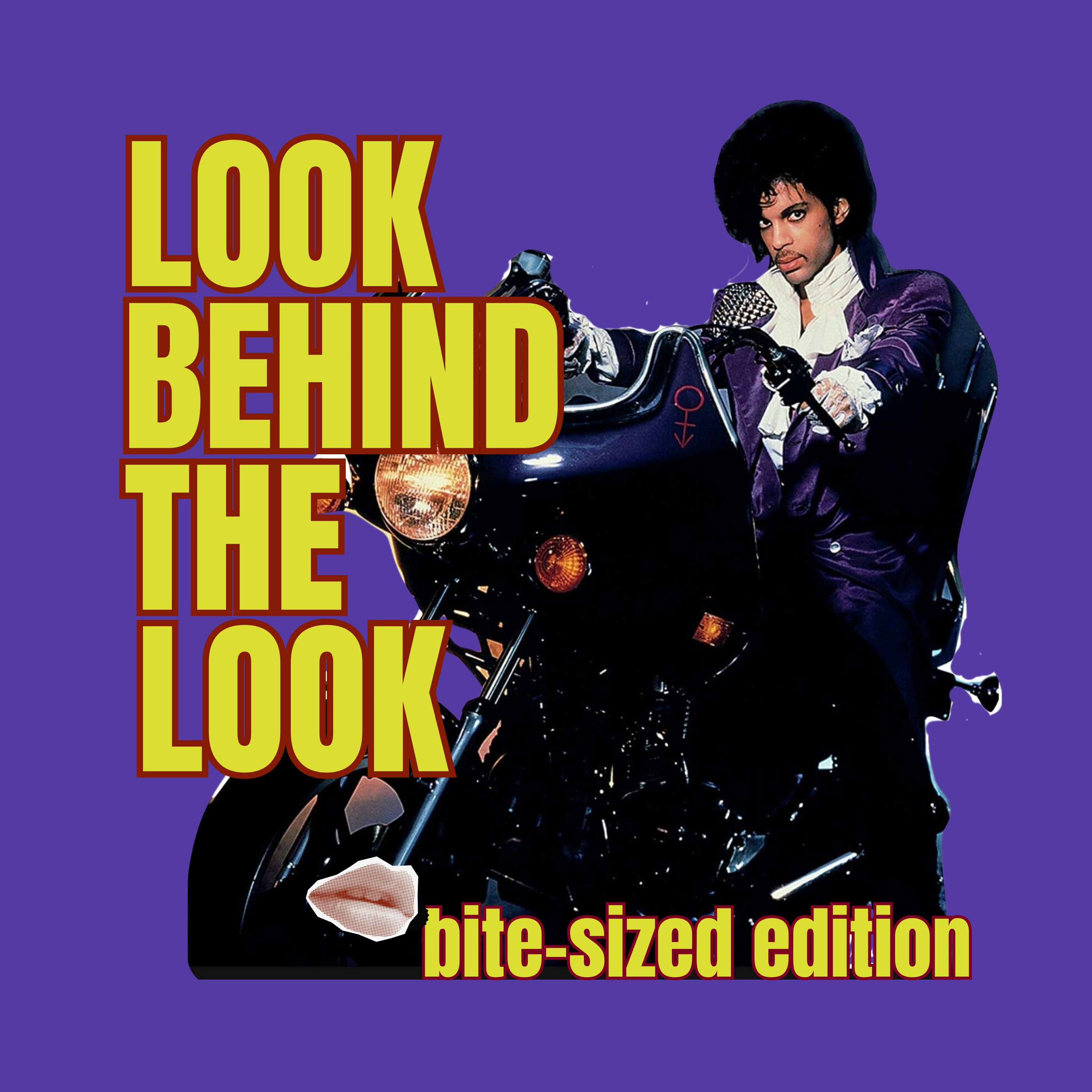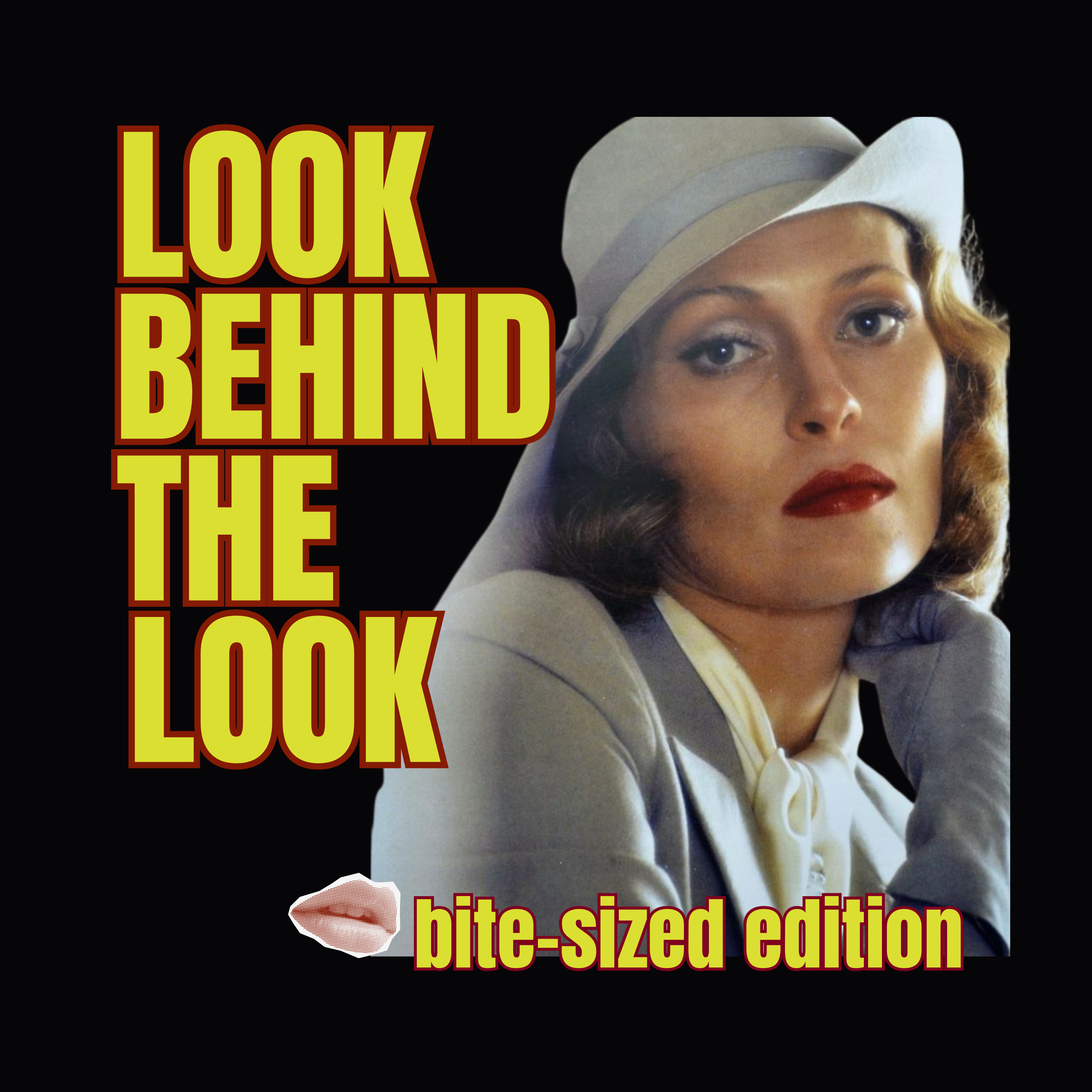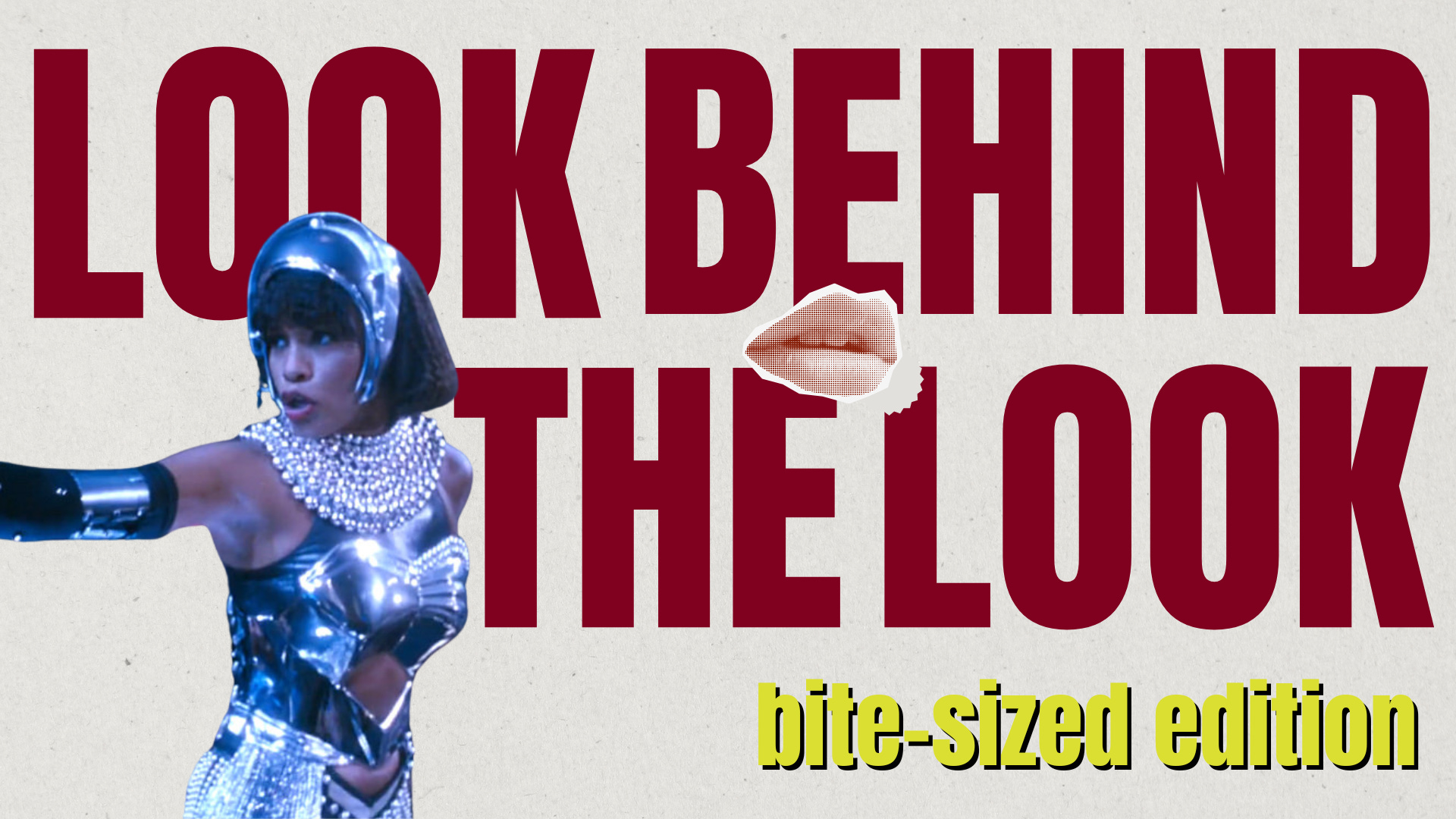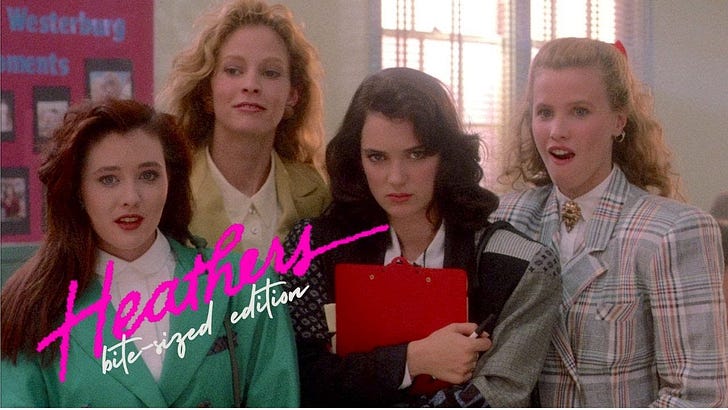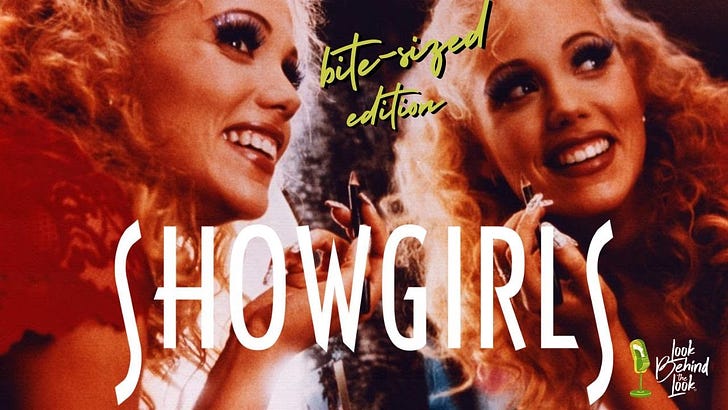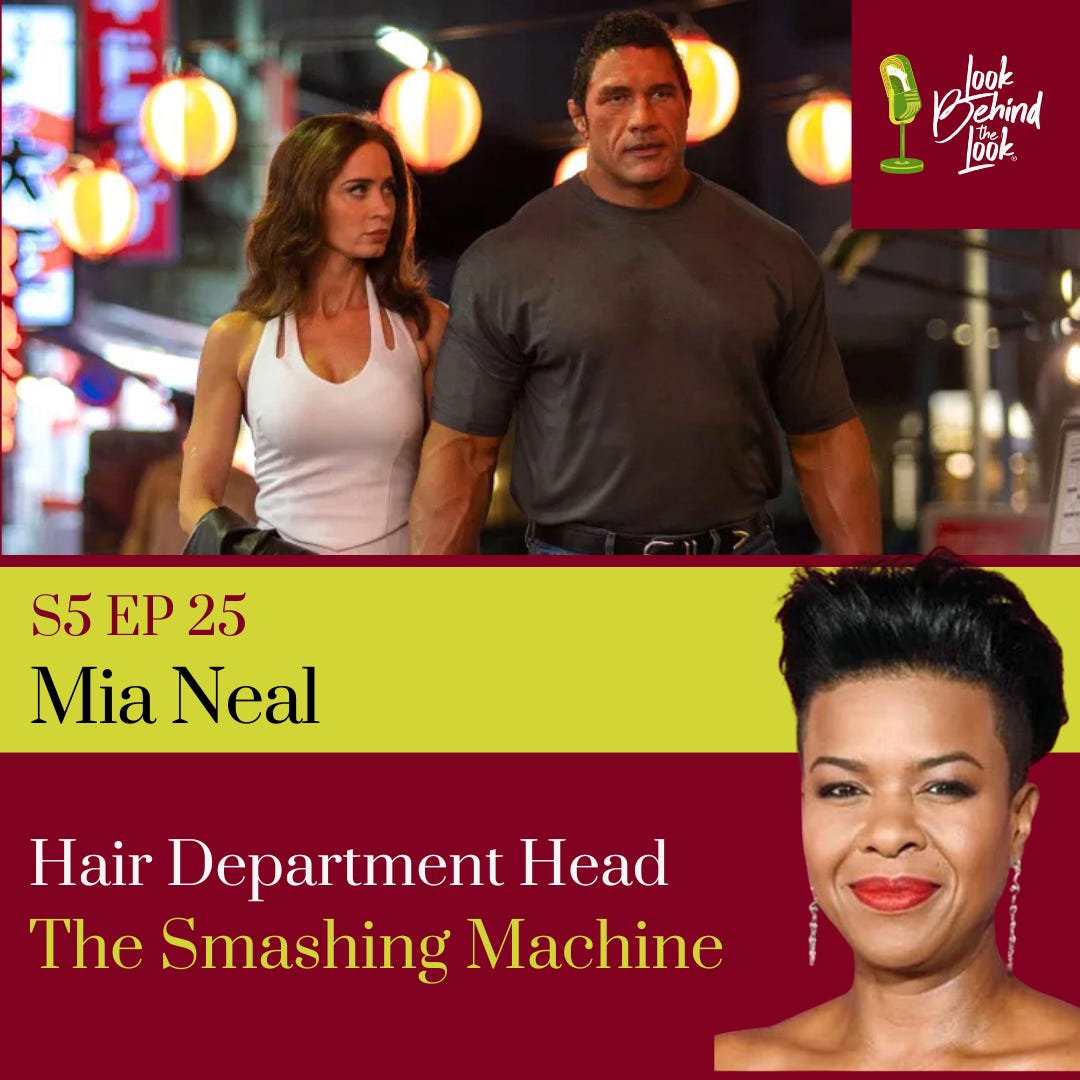A Man With Sole: The Kenneth Cole Documentary Interview w/Director Dori Berinstein and Kenneth Cole

Welcome back to Look Behind The Look! This episode takes us into the world of Kenneth Cole through his documentary, A Man with Soul, premiering at DOC NYC. Join guest host, producer Lauren Rieckhoff as she delves into Kenneth's impactful journey in fashion and social advocacy. Discover how Cole's passion for eradicating stigma and his fearless approach to social issues have shaped his brand and legacy.
Through candid conversations with Kenneth and director Dori Berinstein, we explore the evolution of Cole's work from the early days of the AIDS epidemic to his current focus on mental health. Kenneth shares insights into his resourcefulness and the pivotal role New York City played in his career. Learn about the bold campaigns that challenged norms and the ethos that has driven Kenneth's success.
This episode celebrates the intersection of fashion and social consciousness and the film that is explaining the importance of messaging in fashion.
Catch the documentary at DOC NYC on November 18th and 21st, and stay tuned for its wider release.
00:00:00 Welcome!
00:01:54 Cole’s “business” is about “how do we impact people's lives?”
00:03:28 The impact of amfAR on the fashion world and the world.
00:06:45 Dori Berinstein talks about how Cole’s determination have led to success
00:08:10 Cole’s fearless approach to tackling social issues 30 years ago and now.
00:13:59 Enjoy the film now screening at DOC NYC November 18th and 21st.
Get full access to Look Behind The Look's Substack from Tiffany Bartok at lookbehindthelook.substack.com/subscribe
My favorite assistant: Headliner
Quotes from Kenneth Cole
"It's not just about how many shoes or suits or bottles of fragrance can we sell and to whom. It's how do we impact people's lives?"
"I figured early on in my career that if I could talk to people about not just what's on their body, what's on their mind, not just what they stand in what they stand for, then I'd have such a more meaningful and sustainable relationship with the customer."
"These are not political issues. These are social issues. These are human issues."
"I think New York is this culture hub and it's. There's anything that. Anything you could ever dream about, you know, exists somewhere here in New York."
"Social media has redefined bravery."
Get full access to Look Behind The Look's Substack from Tiffany Bartok at lookbehindthelook.substack.com/subscribe
Look behind the Look explores your favorite looks in film, television and fashion history
>> Tiffany Bartok: Welcome to look behind the look, the celebrated podcast that explores your favorite looks in film, television and fashion history. Through conversations with the fashion world's elite and award winning hair, makeup and costume designers. On sets around the world, you will see and hear exciting tales from behind the scenes, career origin stories and tons of advice and tips. I'm your host, Tiffany Bartok. Hey everybody. Welcome to look behind the Look. This is another episode where I'm covering some of the documentaries at DOC nyc. Be sure to check out the menu of documentaries at DOC nyc. The program is amazing, always is. But this time there's quite a few documentaries that you're going to want to check out as people who are interested in the history of fashion and pop culture. And today I'm bringing you an episode about Kenneth Cole. His documentary is A Man with Soul, the Kenneth Cole Documentary. And you're definitely going to want to check it out, especially if you're one of the kids, the young ones who, are learning about fashion history. Because in this documentary you're going to see the great importance of the social impact that Kenneth Cole had and the voice that fashion had and can have again. I for one think it might have been lost little bit the larger, message that fashion, has the ability and power to sort of get out there. And so I have a guest host today. It is Lauren Rykoff, my dear, dear friend and sister. She is, the producer that's going to be running this because I was seeing movies and everybody was available at different times and very specific times. And so we sort of divided and conquered this, this week. So enjoy.
Shoe business is about how do we impact people's lives
Guest host, Lauren Rykoff. She's going to be talking to Kenneth and Dory who are bringing this film to you and be sure to check it out. I have all the information about how you can see the film down in the show notes and I want to hear what you think for sure.
>> Kenneth Cole: It's not just about how many shoes or suits or bottles of fragrance can we sell and to whom. It's how do we impact people's lives? I was intent on going to law school, but I immersed myself in the shoe business at the time and I never ended up going to law school. Law, I believe, is about learning a book. These are all the rules. And he ultimately who interprets them the best goes the furthest business. There was no book, especially the fashion business. And you write your own essentially every day. And I was fascinated by what everything stood for. And up until that point I had very little interest in women's shoes and in fashion. But it's engineering, it's sculpture, it's design. I learned quickly that it's easier to get financing from a factory in Italy that needs business than from an American bank that doesn't. And I knew I had little time to do it because I have limited resources to work with. So I found suppliers and I went to Italy, designed my first line of lady shoes, not knowing where that would take me, and I came back and had to sew it.
Kenneth Dyer says AmfAR eradicated stigma through fashion
>> Speaker C: All right. So, Dorie, really congratulations to you on bringing this story to life. So many of us, in watching this film, are going to be really surprised to recognize that the through line of your life, Kenneth, isn't just fashion. It's eradicating stigma. So why now? Why tell this story now?
>> Kenneth Cole: Well, thank you for asking the question. I think that's probably. Dory could probably answer the why now? Because it was Dory's fault. it would probably not. I'm not sure the story would be told right now. But I think I'm so happy that it is. And I think because there's so much right now, so much of this storytelling and, resulting, polarization that is overwhelming all of us in different ways. but, when we set out to do this, it was originally I was just trying to, as a business person in the fashion business specifically, I was trying to figure out how to make what I do relevant. Hard sometimes to consistently do that with fashion. And, so. And I figured early on in my career that if I could talk to people about not just what's on their body, what's on their mind, not just what they stand in what they stand for, then I'd have such a more meaningful and sustainable relationship with the customer. And, And initially it was hiv, because that was on everybody's minds, but on nobody's lips. Because stigma was so horrific, if you even spoke about it, you were presumed to be one, a member of one of the high risk groups, all of which was stigmatized, which is intravenous drug users, gay men, or Haitian individuals. and I was afraid people might think I was Haitian, being a single male designer. but in all seriousness, I went down that road because I could, and maybe I'm not sure I should have or would have, or in the ordinary circumstances. And it changed me. It changed the man, changed the brand, changed the company in so many profound ways. So, and it was originally kind of a business thing, and then it became a very personal thing. And then we then Amphor asked me to join the board after that, they were really the only credible organization out there that was addressing a solution which was cure in my mind. And, so I joined the board, and then we took over all their marketing, communications, and advertising internally here at the companies. Everybody in this company was part of AmfAR. It wasn't just me. And so we infused basic business principles into philanthropy and philanthropy into the business. And it wasn't just something we did. It became part of who we were and who we are to this day. And I do believe that we have a retention rate in the company double anybody else's that I know, and I think it's part of it. They're not here necessarily because of me, but they're here because of what we do. And what. And what they do is bigger than just, bringing fashion to the world.
>> Speaker C: So, without a doubt, it is. It's so much bigger than that. although that's not to say that, the fashion that you bring isn't beloved for a reason.
Jory: Kenneth's scrappiness and determination have led to success
I actually want to ask you, Jory, what made you want to start the film and bring us into Kenneth's world with that story?
>> Dorie (likely the filmmaker or producer of the documentary): Well, it's exactly what we're talking about, I think. Just the scrappiness and the resourcefulness and the. I'm going to figure it out no matter what. Don't tell me it can't be done. It can be done. Kind of is the ethos that kind of. At least that I have observed. And, over the 40 years that we documented, basically, it came up over and over again. And it is, I think, those unreasonable expectations that he's had, whether in business or in, Cause, ah, has. And that scrappiness and determination and authenticity has led to this incredible success in whatever he has been involved in. And the fusion of the two, really sets an entire new bar for how business can happen. And, ah, so to me, it's very powerful.
>> Speaker C: Yeah, it was. It immediately brought me in in a way that I didn't expect to be. And again, as a native New Yorker, I thought I knew everything or many things about the work that you do, Kenneth. But, that was an incredible story and just brought us right in.
You were fearless in your approach to tackling social issues 30 years ago
I want to spend one more minute in those early days of the AIDS epidemic and the incredibly brave messaging that you started putting out there. you didn't seem. Whether or not you were even concerned behind the scenes of what your social consciousness could do or not do for, your clients, your customers. you seemed fearless in your approach and putting that message out. So I just have to say, I think my favorite. I remember seeing the billboard for AmFAR. It was the, and I think it's at the end of the movie. if the Pope had aids, he'd need more than just your prayers. And I think that you have such a collection and it's so iconic, your campaigns around amfar, around the AIDS epidemic, and now, of course, going into mental health. Do you have a favorite?
>> Kenneth Cole: That's a hard question. You know, I don't. You know, probably the favorite. My favorites are the ones that I could not get told, but I found a way to tell them. I mean, the one you're referring to is an example of it. We did a whole. It was called the if campaign. We did a series of ads. If your child had aids, he'd need more than just, a pair of queen socks. Or if the president had aids, he'd need more than just your vote. And a series of those hypothetical, scenarios. And then the one about the Pope. And I showed it to the board of anfar and they said, great, but you can't run the Pope ad. So I said, okay, I accept your, feedback. And then we had a big press conference. This is before social media, and I showed him all the ads we're going to run. It was up at the un and then I says, by the way, this is the end. We're not going to run. And, we showed the Pope and that was when they got photographed and was on the COVID of Daily News and News Day the next day, and accompanied by a letter from the archdiocese saying a cease and desist letter, by 12:00. Not to run the ED. We were not going to run. So, and we didn't. But at the end of the day, it got way more publicity than any of the ones we did run. And it helped us communicate an important message.
>> Speaker C: It did.
>> Kenneth Cole: And again, essentially that everybody was vulnerable. That was the message.
>> Speaker C: Right, right. which was such a theme in so many of the campaigns that, you know, it's happening to all of us. It's not just you. Do you feel like that is still prevalent in the fashion world today, that sense of bravery or being outspoken?
>> Kenneth Cole: Well, you know, social media has redefined bravery, I think. And, because today all these people do stuff anonymously and you can be disruptive and you can be inappropriate. you know, whoever you are, wherever, and you can do it anonymously and, you know, you can be, you can be yourself or you can be a bot, or you can. And, so these are very different times. And, you know, the polarization makes it really, really hard. And how do you. To respectfully disagree with each other is almost impossible today. And, hopefully that all changes. and I have some thoughts on that, but we don't have enough time for that tonight. Today. But I've loved taking on subjects and opportunities and problems that probably a normal person would not and a responsible business executive probably would have stayed clear of. Most of the things we talk about, we've talked about women's reproductive rights, 30 years ago. We talked about, we, talk about guns and gun safety and the right to bear arms. 1989, we talked about death penalty. We talked about all these things that you were not supposed to talk about. and. But I think hopefully we were able to find the tone that made sense. It was before social media, so it was, it was less inappropriate then than it might have been perceived today. Right. And, but I, you know, I just love that I was able to do so much of what I did. And I did it as a private company, then I did it as a public company. I was criticized as a public company. We traded on New York stock exchange for 20 years. And people said, how do you talk about these political issues as a public CEO with public dollars? And my answer was always, these are not political issues. These are social issues. These are human issues. these are public health issues. all of which have been politicized, but they are not political issues. and that's the nuance. But it was more than that because I was doing this before we went public. I did it during and I've done it since.
>> Speaker C: You say quite clearly in the film. And Dory, you do such a beautiful job of really showcasing this in different periods of Kenneth's. But information is empowerment. and the sharing of information is what we can give back. if we have a microphone and a platform, we can give back in a big way. I mean, the work you're doing around mental health now and continuing to eradicate stigmas, across so many suicide, so many issues that are touching this younger generation. Is there anything you haven't spoken out about yet that you're like, we've got to tackle this?
>> Kenneth Cole: I think we have to tackle right now how these algorithms are overwhelming all our lives. They were infusing hate into all the rhetoric out in the world. And, if somebody doesn't figure that out, we got a problem quickly. but other than that, I've spoken about most things.
>> Speaker C: I think you'd find many of us would join that coalition against the algorithms, for sure.
Tiffany Bartok: Thank you for sharing your story with us
but let's talk about your early days in New York City. I love the fact you're not a trust fund kid who started a fashion company. You were selling peanuts on a corner, and then you went to Madison Square Garden and got a job. So how do you think that New York City really played a part in making you the man that you are today?
>> Kenneth Cole: I think New York is this culture hub and it's. There's anything that. Anything you could ever dream about, you know, exists somewhere here in New York. And then. And it challenges every aspect of you of one. and, you know, I loved sports when I was a young boy, and I would play whatever I could where never I could. But I also needed and wanted to make money. So I figured out maybe I could sell peanuts at Chase Stadium and, and then ultimately at. And see all the MC games and then it Chase and then at Madison Square Garden and see the Nick games and the Ranger games. And I did that and that was great. And I was resourceful in how I got those jobs and, how I kept them. and, I guess I was resourceful at most things that I did. And I would figure out what was the optimal scenario and, or as, Dory often refers to it as, ah, my unrealistic expectations. And. And I would. And I would figure out how to bring them to life if I could.
>> Speaker C: Well, I think resourcefulness and, you know, as us New Yorkers would say, or just being so darn scrappy, was so evident in the very first scene of the film, when you told the story about Kenneth Cole Productions and the birth of a shoe company. can you guys tell me before I let you go, just where can viewers go to see this incredible film? how can they be a part of the story?
>> Dorie (likely the filmmaker or producer of the documentary): Thank you. We're going to be at DOC NYC, on the 18th and the 21st. and then we look forward to rolling out, beyond that. And hopefully, everyone will have a chance to see the film. We're really excited to get it out there.
>> Speaker C: I. I can't wait for everyone to see it. And like I said, it's.
>> Kenneth Cole: Thank you.
>> Speaker C: It's an. It's an incredible story and inspiring. Very, very inspiring. So I'm so grateful to you guys. Thanks for taking the time to talk to us at the look behind the look and, enjoy the rest of your day.
>> Kenneth Cole: Thank you so much.
>> Tiffany Bartok: Look behind the look is a vinyl foot production Written by me, your host, Tiffany Bartok Produced by Jace Edited by Mugresh Thakur if you're interested in learning more, find our video version on the YouTube channel look behind the look podcast. There you can see rare photos and clips from our guests and please follow us on Twitter ookbehindpod and Instagram @lookbehindthelook. If you like the show, please rate, review and subscribe and tell your friends and spread the word. You can subscribe to us on itunes or any podcatcher of your choice. Thanks for listening to look behind the Look.




















